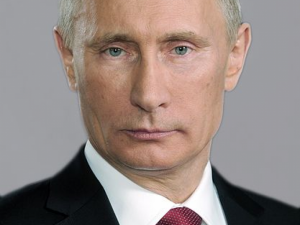
A crucial role of leadership is to shape our attitudes toward our friends and enemies. Good leadership gives us perspective and puts events in their proper places. Good leadership uses the “bully pulpit” to praise the good and call out the bad. It rallies us to action. Leadership reminds us who our friends and enemies are.
Speaking of friends, I saw a letter to the editoradvocating higher minimum wage law this morning. The last sentence was: “People aren’t paid what they are worth; in the absence of regulations, people are paid what those in power can get away with.”
“Those in power” are our friends and neighbors. That’s the guy down the street with a pizza shop or someone who might own a McDonald’s franchise. It’s a law abiding citizen and member of your church or health club. Hiring a scruffy teenager with no work history, at minimum wage, is not a malevolent act. It is an act of faith in the goodwill and competence of that teenager. It is not something that you “get away with”.
These are our friends. Nevertheless, this author resorts to the force of law to make hiring that teenager illegal.
On the other hand, there are people in the world who are clearly not “our friends”. They have their own agendas, and they respect strength, not rhetoric. These people are not moved by aspirational speeches. They have interests and they pursue them. They do “what they can get away with”. They respect only those who have the strength to oppose them. They are not “our friends”.
Vladimir Putin is one of these people. David Brooks recently praised President Obama’s dealings with Mr Putin over Crimea, and opined: “I’d love to see every Russian oligarch have their kid kicked out of British prep school or something like that. That would end the crisis in a week.”
The thinking of Mr Brooks is a real puzzle to me. Does he really believe that Mr. Putin would put attendance of his children in a foreign prep school above the interests of his nation? Even if the Russian oligarchs were stung by this, can Brooks imagine them capitulating over their childrens’ prep school opportunities? Would a nation that retains the capability to reduce the surface of the earth to ashes really be cowed by such a threat?
I think not. Maybe the Obama administration is so full of people who would be swayed by such a threat, that they don’t understand those who would not.
I have a hard time taking this thinking seriously, but Mr Brooks’ comments were serious. In President Obama’s, and David Brooks’ reality, reset buttons, pinprick sanctions and international “isolation” are the levers that move the world – not military power and the steely will to use it.
Ex- KGB officer Vladimir Putin has no faith in us. He will do us no favors, and will respect our interests only if we make sure that doing so is in his. He recently demonstrated his brazen indifference to “world opinion” by staging an election in Crimea at gunpoint . This was a malevolent act. It appears to be something he will “get away with”. Putin is clearly no stranger to the use of compulsion and pressure. That is what he understands. That is what will move him if we want him to take a different path.
President Obama has worked hard to treat Russia like a “friend”. There was the “reset button”, and the removal of the missiles in Poland, and more recently the fiasco in Syria. The response? Putin invades Crimea.
It is time to recognize reality. American entrepreneurs are our friends. The Russians are not. American employers are the ones who create the jobs, train the teenagers, and produce products that we want to buy. American business is the economic engine that produces prosperity. Rhetoric that portrays businesses as vultures preying on helpless employees is more than inappropriate. It is cynical and destructive. Policies based on ” you didn’t build that” will leave us no “unequal” wealth to enjoy, much less redistribute.
Our international opponents are real. They are tough and determined. They understand strength. They are not deterred from their goals by the threat of being kicked out of a prep school, and we would do well to understand that. Security is hard. Security is expensive, but as expensive as it is, it is nothing compared to the cost of its loss.
It is time for us to demand that our leaders stop attacking the productive while cozying up to our opponents as though we can make them our friends.

